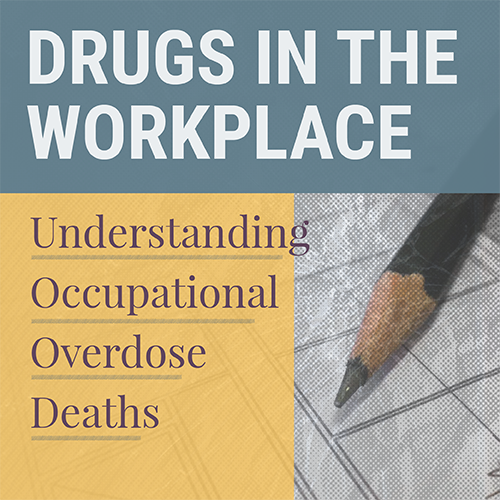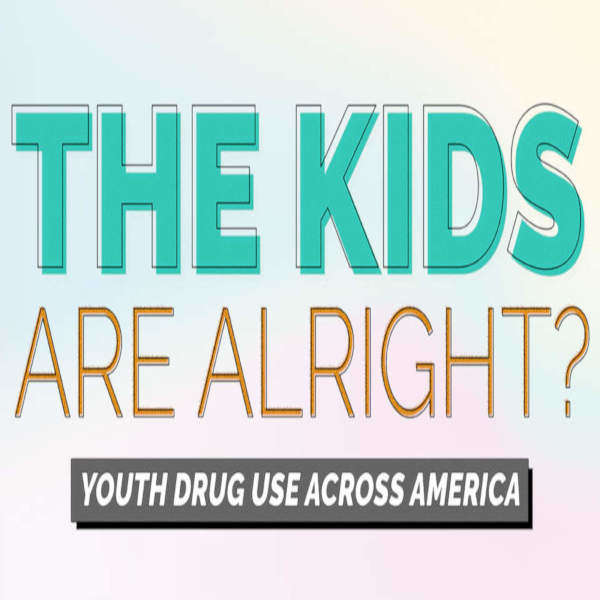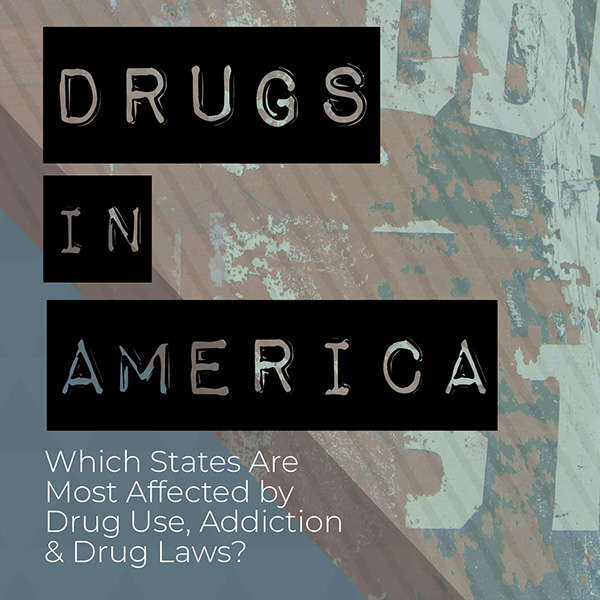US Drug Test Centers Blog
How Can You Tell if Someone is High? | US Drug Test Centers
If you're a business owner (or in a position of leadership), you're responsible for providing a safe and healthy working environment for all of your employees. In part, this means you need to ensure that your workplace stays free of drugs and alcohol. Knowing this, we're here to help you understand how you can determine if an employee might be under the influence.
You might also be interested in learning how to maintain a drug-free workplace in the age of WFH.
How to Tell if Someone is High
Understanding the indicators of substance misuse and abuse can help you make the best possible decisions when you suspect an employee might be high. While intoxication might look different from one person to the next, there are certain factors you should be on the lookout for.
- Odor: Drugs can leave a smoky or sweet smell on the users' clothes or hair. If they have powerful perfume on or use strong air fresheners in their space, they could potentially be covering up the smell of drugs.
- Red eyes or a runny nose: Drugs can cause bloodshot or watery eyes as well as a runny nose. Frequent rubbing of the nose or wearing sunglasses indoors may be an attempt at hiding these things.
- Disorientation: If someone is high on drugs, they tend to enter a dreamlike state or may experience euphoria. They may look like they aren't fully present or aware of their surroundings. They can also experience difficulty speaking or keeping up with conversations.
- Agitation: Individuals under the influence might show signs of irritability and nervousness. They can be jumpy, easily triggered, or quickly angered by normal things.
- Unusual behavior: Employees may do out-of-the-ordinary things like behaving excessively outgoing, overly aggressive, or talkative. Some may appear to clench their jaw, grind their teeth, nod a lot, or scratch their nose and scalp. Others may also experience paranoia or display unusual mood swings.
- Trouble speaking: People who are high may experience slurred speech, meaning they have trouble stringing words together or communicating in complete sentences clearly.
- Difficulty breathing: Drug abuse slows people's breathing and suppresses the central nervous system (CNS). If your employee appears to be taking shallow breaths or struggles with regular breathing, this can be a sign of intoxication.
- Chills or sweating: People who are high are likelier to experience heavy chills or sweating. This is because certain drugs can alter your body's conditions, so users' body temperatures don't always match their surrounding temperature.
- Strange injuries: An unusual bloody nose can be caused by excessive snorting of drugs. The use of hot glass pipes to smoke may leave burns on the users' fingers or lips. Injecting drugs can also leave bruises or track marks.
Other Signs of Drug Intoxication for 4 Commonly Abused Drugs
In addition to these common side effects, people demonstrate different signs depending on the drugs taken. Here are some indicators to watch out for.

Marijuana affects the communication between body cells and the brain, giving off a calming and relaxing effect. Common warning signs include:
- Delayed reaction time
- Mood shift from tense to calm
- Poor muscle coordination
- A sudden increase in appetite
Cocaine essentially speeds up the whole body. Users may experience:
- Increased heart rate
- Nosebleeds or a loss of sense of smell
- Moving, talking, or thinking rapidly
- Shakes and twitches
- Feeling tired and unhappy (after the drug wears off)
Meth tends to increase one's breathing and blood pressure, making people hyperactive. Indicators include:
- The inability to stop eating or sleeping
- Moving or talking a lot
- Skin sores (usually from unnecessary scratching)
Opioids give users the feeling of heightened comfort and happiness. Users may experience:
- Difficulties eating or sleeping
- Dilated pupils
- Extreme sleepiness
- The need to vomit regularly
- Bone or muscle pains (when the drug wears off)
What Employers Can Do if An Employee Appears High
If you suspect someone on your team is high on drugs, one of the best steps you can take as an employer is to conduct reasonable suspicion drug testing.
This occurs when you have evidence or reason to believe that an employee is impaired or under the influence of drugs. In most cases, the employee will be advised to not return to work until their drug test results are received.
Importantly, there are rules and requirements to abide by to ensure that you are following the right course of action. Reasonable suspicion drug testing isn't meant to prove drug misuse, identify the substance involved, or fix the issue. Rather, as an employer, the goal is to identify and document the signs of impairment.
Reasonable suspicion drug testing can prevent accidents, crime, and violence from happening at the workplace. It saves you substantial money, time, and other valuable resources. Plus, it gives you the opportunity to assist the employee in seeking the help they need.
Ultimately, reasonable suspicion drug testing can help protect the safety and performance of the employee in question and other people in the workplace.
As an employer, you need to maintain a drug-free, safe, and productive business. This starts by having a drug-free workplace policy in place that all staff members are knowledgeable of. This policy outlines what's expected of employees and the consequences if they breach these rules with inappropriate behavior. It also protects their rights and your rights as an employer, to ensure they are treated equally should they be in that position.
Similarly, it's beneficial to offer training to your HR team, managers, and other team leaders on identifying intoxication in the workplace. They should be taught how to document and handle such situations.
US Drug Test Centers can help you with all of your drug testing needs. We can also assist in making a drug-free workplace policy specific to your company and in training your staff members.
Contact us to learn more.






















